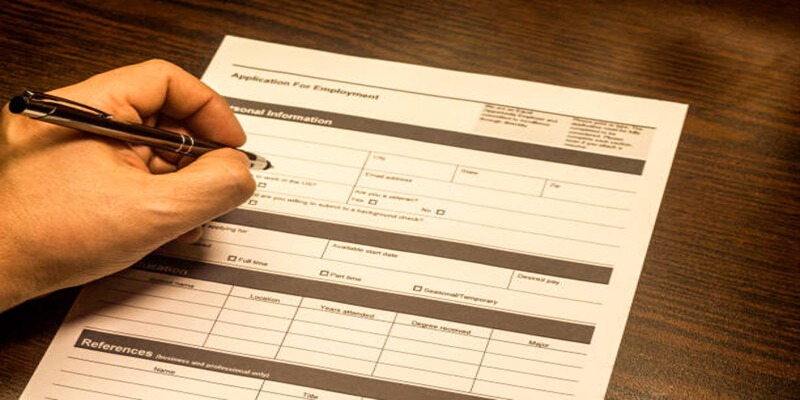Understanding the Timeframe for Executor Payments to Beneficiaries
Jan 20, 2024 By Triston Martin
When individuals think about drafting a will, their primary concern often revolves around distributing inherited assets to the rightful beneficiaries. However, before any assets are handed over, the executor is responsible for navigating various crucial stages of the probate process. As a potential beneficiary, it's understandable to wonder about the timeframe involved and anticipate when you might receive your inheritance.
This article explores how the timeline affects the probate process and the duration it takes for the executor to pay the beneficiaries.
What Must an Executor Do in Order to Receive Beneficiary Payments?
An executor must finish a number of important duties to ensure a comprehensive and legal administration of the estate before they may distribute any money to the beneficiaries.
Submit the Probate Petition
When someone passes away, their assets and estate need to be managed, and this process is known as probate. If there's a will, the executor files a petition for probate with the court to get the legal authority to handle the deceased person's affairs.
The court grants authorization for either the executor (named in the will) or an administrator to act as the personal representative and oversee the estate. This step is crucial for managing assets and settling affairs according to the law.
List the Possessions of the Deceased
After the initial petition for probate is approved, the executor has the responsibility of creating a comprehensive inventory of the deceased person's assets. This inventory encompasses everything the individual owned.
The executor provides estimated values for each item, and in some cases, appraisals may be necessary to determine precise values. This inventory serves multiple purposes—it aids in assessing potential estate tax liability, informs beneficiaries about the estate's overall value, and guides the executor in managing debts and expenses associated with the estate.
Finalize Your Bill Payment
Following the inventory, the executor's next crucial task is settling the deceased person's financial obligations. This involves paying all outstanding bills, taxes, and estate administration expenses before distributing funds to the beneficiaries. The executor initiates this process by notifying known creditors of the individual's passing, giving them the opportunity to submit claims against the estate.
Additionally, a public notice is often published to inform unknown creditors. Creditors typically have a limited timeframe, usually between three and six months, to assert their claims. Failure to meet this deadline may result in the denial of the claim.
The executor must also handle estate administration expenses, covering items such as funeral costs, legal fees, and potential executor fees. Furthermore, settling any outstanding taxes, both on the deceased person's final tax return and, if applicable, on an estate tax return, is an integral part of this phase.
Duration of Asset Distribution
Executors should adhere to the following general rules to make sure that possessions are allocated to recipients in a convenient and efficient manner:

Putting an End to Conflicts
Before transferring the assets to beneficiaries, the executor is required to settle any disagreements over the will or the allocation of assets. This could entail going to court, negotiating with parties in dispute, or even obtaining legal counsel.
Asset Distribution in Phases
In some circumstances, the executor may choose to distribute assets gradually as opposed to all at once. This could be carried out to guarantee a just and equitable distribution of assets or to guarantee that recipients receive the assets they inherit at a time suitable for their particular situation.
Informing Recipients
The executor is responsible for keeping beneficiaries updated on the distribution of assets, including any challenges that may come up. In the future, this may assist in preventing misunderstandings and conflicts.
Title Transfer of Property
Before the funds can be dispersed, the title transfers for any real estate or additional assets included in the estate must be finished, which may take some time.
Finding Possible Claims
The executor is required to locate any claims that might be made against the estate prior to allocating the assets. This could involve assertions made by relatives, creditors, or other persons who might contest the will.
Typical Obstacles in Reimbursing Beneficiaries
Executors may encounter a number of difficulties in paying beneficiaries, which could cause delays and annoyance for all parties. The following are some typical difficulties executors could run into, along with solutions:

Arguments Between Recipients
Beneficiary disagreements over asset distribution are among the executors' most frequent problems. If there are several beneficiaries with conflicting interests or if the will is imprecise, this may be very difficult. The executor may need to obtain legal counsel in order to help settle the disagreement, but they should collaborate with all parties to try to create a just and equitable solution in order to overcome this obstacle.
Waiting Periods for Probate
It may take longer than anticipated to get probate, particularly if the property is substantial or complicated. Because the executor cannot disperse funds until probate has been granted, this may cause delays in paying beneficiaries.
The executor can overcome this difficulty by collaborating closely with their attorney to make sure that all required paperwork is filed on time and, therefore, the probate procedure moves as quickly as feasible.
Recognizing and Discharging Outstanding Debts
Finding and paying off all outstanding obligations owed by the estate is another difficulty for executors. This may be particularly challenging if the person who passed away had a complicated estate or if there was a lot of debt.
Executors can overcome this difficulty by collaborating with their solicitors and financial experts to make sure that all loans are appropriately located and settled as soon as feasible.
Final Verdict!
It is essential to comprehend the timetable for allocating assets to beneficiaries in the complex process of probate. While the duration can vary, communication, early planning, and a clear understanding of the process empower beneficiaries to handle this waiting game with patience and preparedness.
Remember, each probate case is unique, and factors such as the estate's complexity and state laws play pivotal roles in determining the timeline.
-
 Mortgages Jan 12, 2024
Mortgages Jan 12, 2024December 2022's Top Providers of Home Equity Loans
Homeowners can use the home equity as collateral for a loan. To calculate your home's equity, subtract your mortgage balance from the home's current market value. Home equity loans are popular among borrowers who want to make home improvements and those who want to pay off or consolidate high-interest debt
-
 Business Sep 18, 2024
Business Sep 18, 2024Top Free Website Builders for Small Businesses in 2024: Build Your Online Presence for Free
Discover the 8 best free website builders for small businesses in 2024. Learn how to create a professional website without breaking the bank.
-
 Know-how Jan 09, 2024
Know-how Jan 09, 2024Form 8283 Explained: Understanding Noncash Charitable Contributions
Explore the intricacies of filing Form 8283 for noncash charitable contributions. Learn the process, common mistakes, and how to maximize your tax deductions.
-
 Know-how Nov 24, 2023
Know-how Nov 24, 2023Understanding Current Mortgage Rates: A Look at the Future
It delves into the implications of government policies, creditworthiness, market transparency, and individual financial outlooks on mortgage rates. The guide also highlights different mortgage terms, interest rate structures, the influence of economic indicators, and the significance of credit scores.
